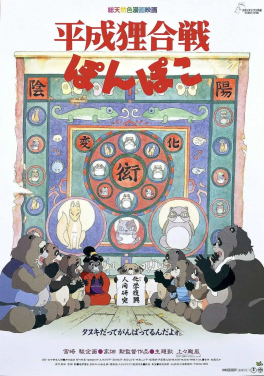Analyzing Providentialist Thinking in Ada Palmer's Translation Expose
Belangrijkste concepten
The author explores the contrast between Western Providentialist narratives and Japanese ecosystemic storytelling, highlighting how different cultural traditions shape narrative logics and themes.
Samenvatting
Ada Palmer delves into the realm of Japanese horror to dissect the underlying narrative structures that differentiate Western Providentialist tales from Japanese ecosystemic storytelling. By examining various examples, she showcases how these contrasting approaches influence character fates, moral judgments, and thematic developments. The analysis not only sheds light on the uniqueness of Japanese narratives but also prompts reflection on inherited narrative formulae prevalent in Western media consumption.
The Ghost Did What?! Translation Exposing Providentialist Thinking
Statistieken
"In a Western horror story where humans disturb some dormant entity...the entity will lash out and harm/kill (A) unnamed bystanders, (B) the characters who did the violating/breaking/trespassing, and (C) people who are bad."
"Japanese-written dormant-entity tales tend to depict the entity lashing out more indiscriminately, sweeping in like a flood or biological-level threat."
"Humanity as a whole has transgressed, disrupted something...so humanity as a whole is attacked."
Citaten
"The logics of such Japanese haunting stories are not Providential in the individual judgment sense as the American ones are."
"Narrative variety broadens thinking. Every time translations give us access to new cultural traditions, the thrill of 'The ghost did what?!' is also a window on what is formulaic in the media we’re used to."
Belangrijkste Inzichten Gedestilleerd Uit
by Ada Palmer S... om strangehorizons.com 11-27-2023
http://strangehorizons.com/non-fiction/the-ghost-did-what-translation-exposing-providentialist-thinking/
Diepere vragen
How can understanding diverse narrative traditions enhance our appreciation for storytelling across cultures
Understanding diverse narrative traditions can greatly enhance our appreciation for storytelling across cultures by exposing us to different storytelling techniques, themes, and perspectives. By delving into narratives from various cultures, we are introduced to unique ways of structuring plots, developing characters, and exploring moral dilemmas. This exposure not only broadens our understanding of the human experience but also challenges our preconceived notions about how stories should unfold. For example, in Japanese narratives discussed in Ada Palmer's article, the concept of transitive guilt and ecosystemic storytelling deviates from the more familiar Providentialist approach found in Western literature. By immersing ourselves in these diverse narrative traditions, we gain a deeper appreciation for the richness and complexity of storytelling across different cultures.
Is there room for blending elements of Providentialist and ecosystemic narratives to create more nuanced stories
There is certainly room for blending elements of Providentialist and ecosystemic narratives to create more nuanced stories that challenge traditional tropes and offer fresh perspectives on good versus evil. By incorporating aspects of both narrative traditions, storytellers can introduce layers of complexity to their narratives that reflect the intricacies of real-life ethical dilemmas. For instance, combining Providentialist elements like individual judgment with ecosystemic concepts such as transitive guilt can lead to compelling character arcs where personal actions have broader consequences beyond individual fates. This blending allows for a more holistic exploration of morality and agency within a story while offering audiences a richer tapestry of thematic exploration.
How might exploring different cultural narratives impact societal perceptions of good versus evil
Exploring different cultural narratives can significantly impact societal perceptions of good versus evil by presenting alternative frameworks through which moral judgments are made. As seen in Ada Palmer's analysis of Japanese narratives compared to Western ones, cultural storytelling influences how concepts like purity, culpability, and redemption are portrayed within a narrative context. Exposure to diverse cultural narratives challenges entrenched beliefs about morality and encourages audiences to consider multiple perspectives on what constitutes right or wrong behavior. By engaging with stories that diverge from familiar Providentialist approaches towards more ecosystemic understandings of ethics, individuals may develop a greater awareness of the complexities inherent in moral decision-making processes across different societies.
0
